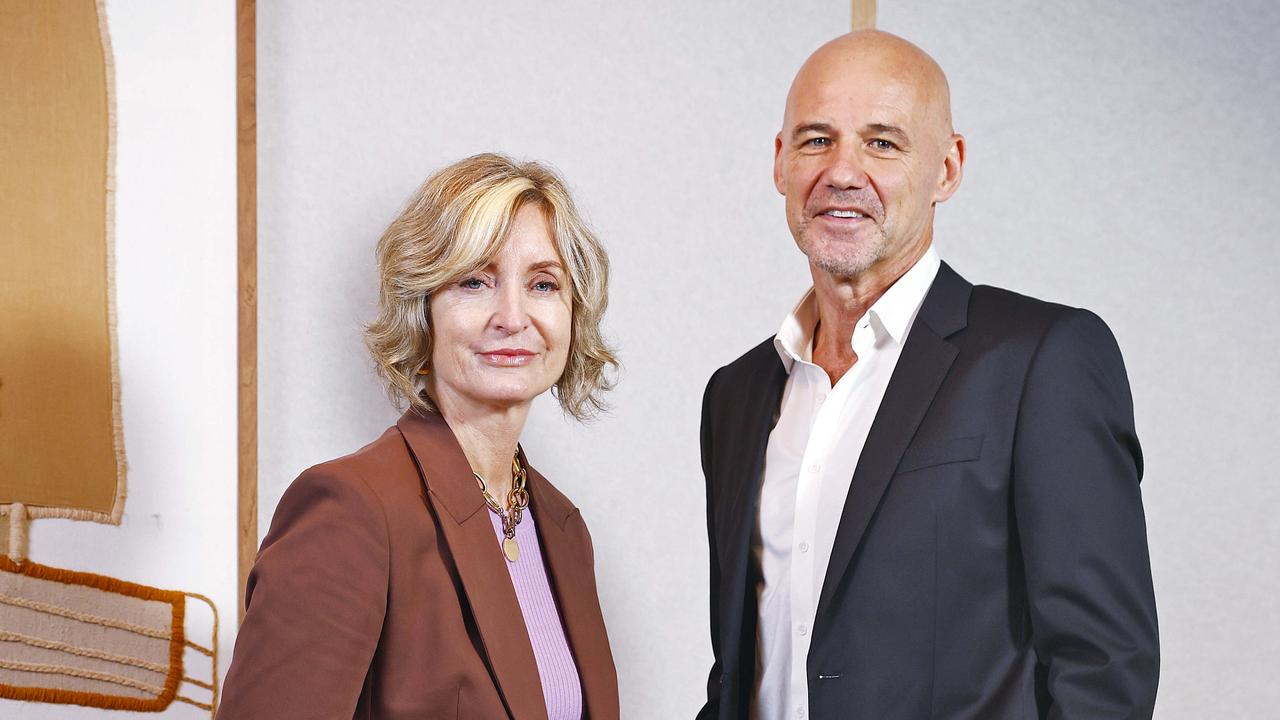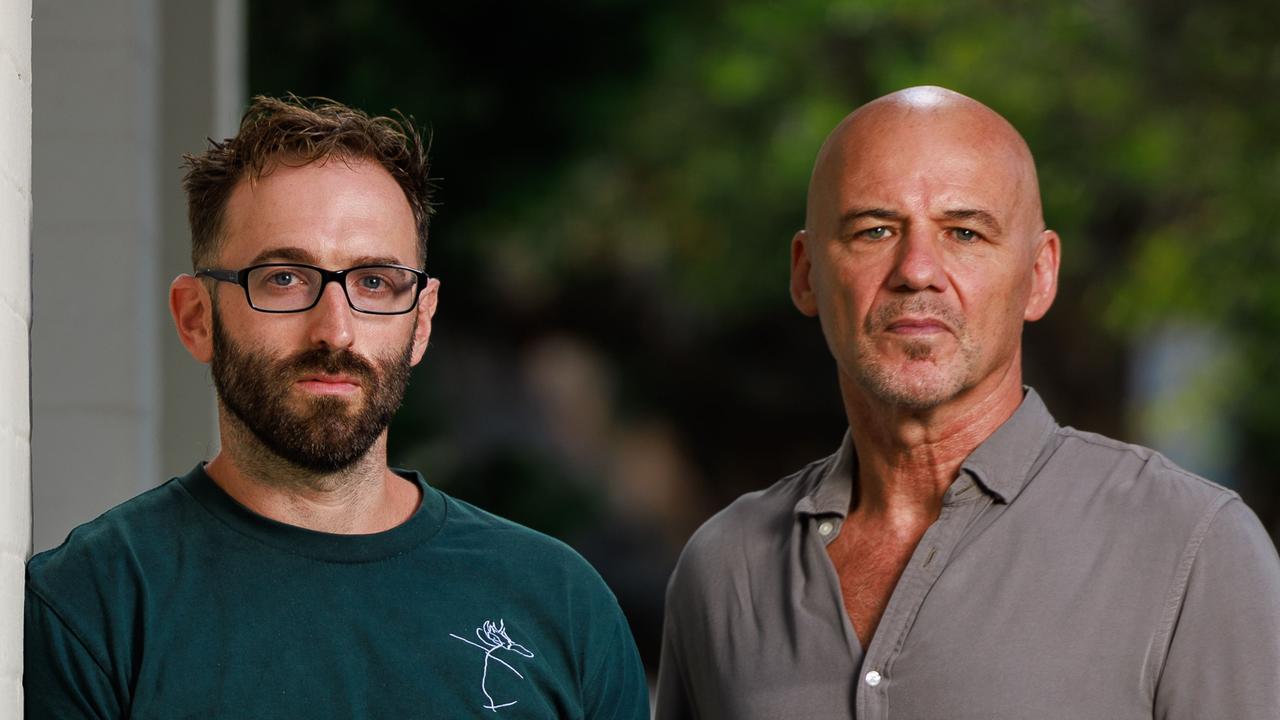I Catch Killers: Margaret Cunneen reveals the pain behind ICAC investigation
Margaret Cunneen prosecuted some of the biggest cases ever seen in Australia and also had to overcome an ICAC probe that pushed her to the brink. She opens up to Gary Jubelin in a riveting I Catch Killers.
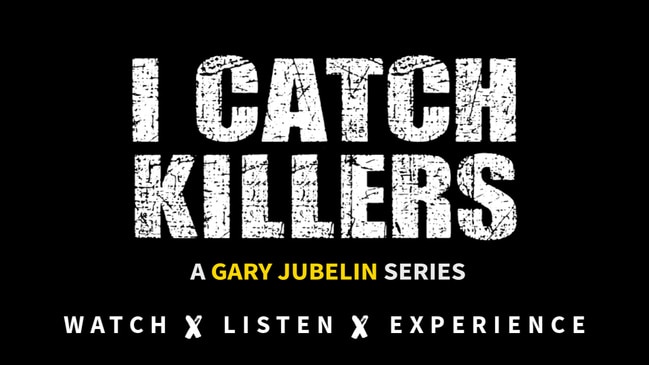
I Catch Killers
Don't miss out on the headlines from I Catch Killers. Followed categories will be added to My News.
Margaret Cunneen knows who her real friends are.
One of the country’s most high profile barristers discovered, after being charged with perverting the course of justice by the Independent Commission Against Corruption in 2014, just who was in for the long haul and who didn’t want to stick around when the going got tough.
The allegation that she attempted to influence the outcome of a police inquiry after her son Stephen’s girlfriend Sophia Tilley was involved in a serious car crash was successfully appealed at the NSW Court of Appeal, a decision upheld by the High Court.
Don’t miss Gary Jubelin’s interview with Margaret Cunneen as she opens up about her career, ICAC and the biggest cases she has prosecuted. Listen below.
Part 1: The rise of Margaret Cunneen
Part 2: Margaret Cunneen’s biggest cases and that ICAC probe
The allegation being that she told Tilley to fake chest pains to avoid a DUI test. Police completed a test later in hospital and found zero alcohol or drugs in her system.
But, as she recalls to Gary Jubelin in this week’s compelling I Catch Killers podcast, the scars have lingered and she is scathing about the ICAC process that left her fighting for her reputation, if not still perplexed by it all.
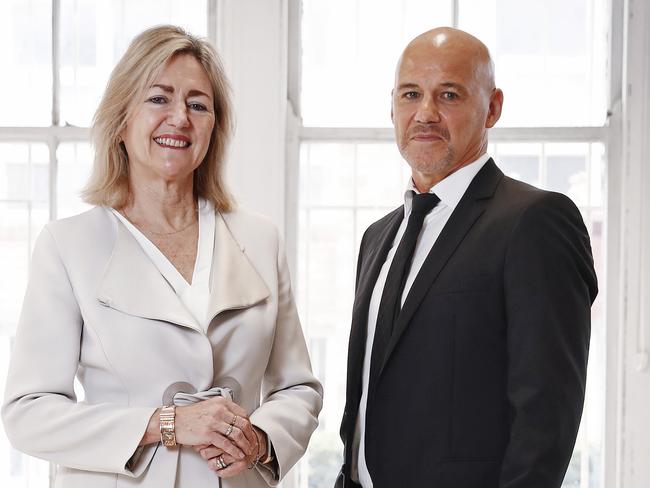
“I want to know why such a waste of public resources? Why no heads ever rolled about that. Really, it’s just a disgrace,” Cunneen tells Jubelin.
“Did ICAC perform the most fundamental inquiry of all? (That being) Did (Tilley) have a blood test? No, they didn’t. The police had done their job. There was absolutely nothing about this, and I’m still rather at a loss to know what it was about.
“This is the trouble with having investigators who, unlike the police, never have to hit the witness box and explain why they do what they’ve done. If that was a police officer, they’d be called to account. But these faceless people and also these people who probably aren’t trained in criminal investigation, they might be some kind of half-baked lawyers or something.
”And this suggestion of corruption. I mean, where did that come from? What could that possibly be? And so in the end, of course. Well, I stopped it.”
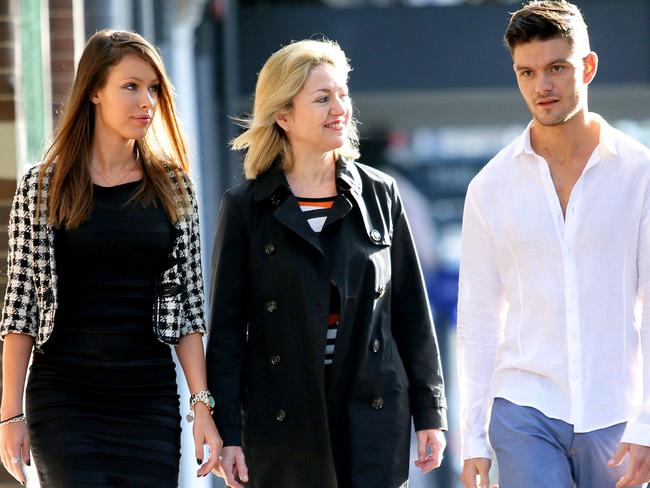
Although the harrowing process had its consequences, as friendships fell by the wayside, fearful, Cunneen believes, their reputations would be tarnished by their association with her.
“During that time, some people just dropped off altogether,” she says.
“Since then I’ve had people come to me and say, ‘can you help me with this?’ and (I’d say) ‘have you been out of the country for a couple of years? I didn’t hear from you.’”
Her own experience, she tells Jubelin, is one of the reasons she recommended to the Morrison government that a federal anti-corruption watchdog should conduct investigations behind closed doors.
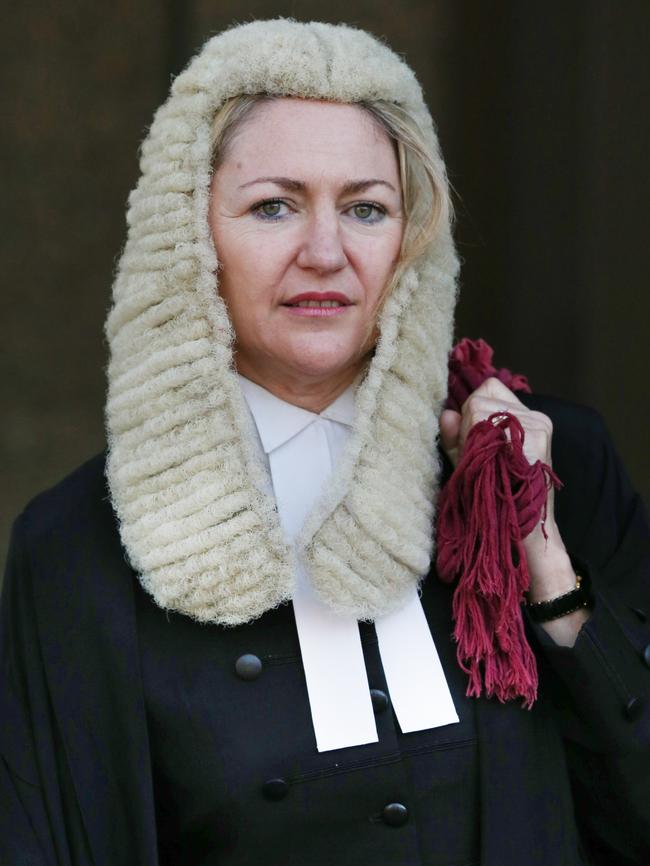
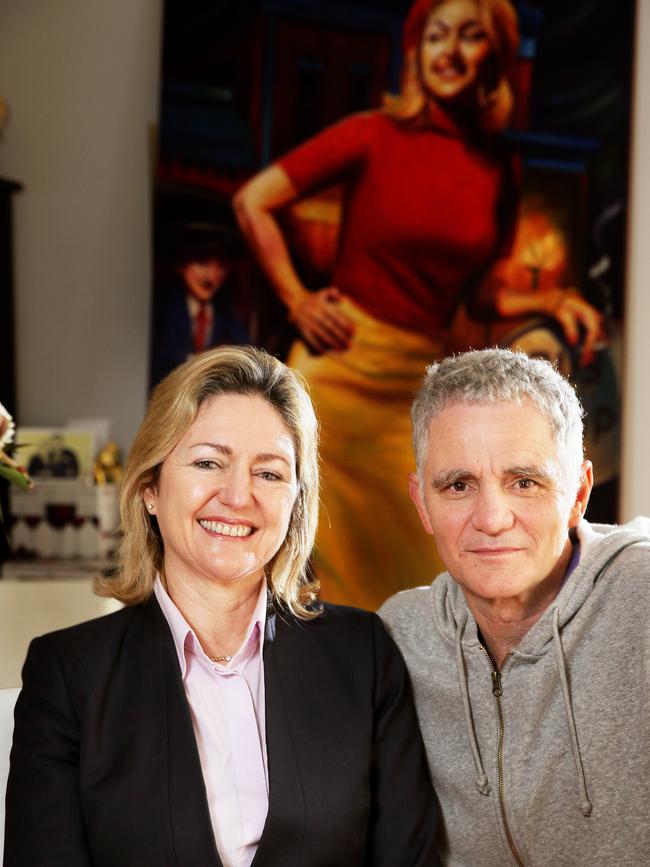
“I had seen it from inside and outside how an unsuccessful corruption body works. And it seems to me that it’s too ambitious and serves no purpose to run investigations in the public,” Cunneen says.
“The excuse is, ‘well, throw light on it’. Well, there’s always time to throw light on if you can prove a case.”
While the ICAC case was national news, for Cunneen it was not the first time she had caught the headlines and she reveals to Jubelin the passion which drives her commitment to the law and justice and why she is admired and loved by those she represents.
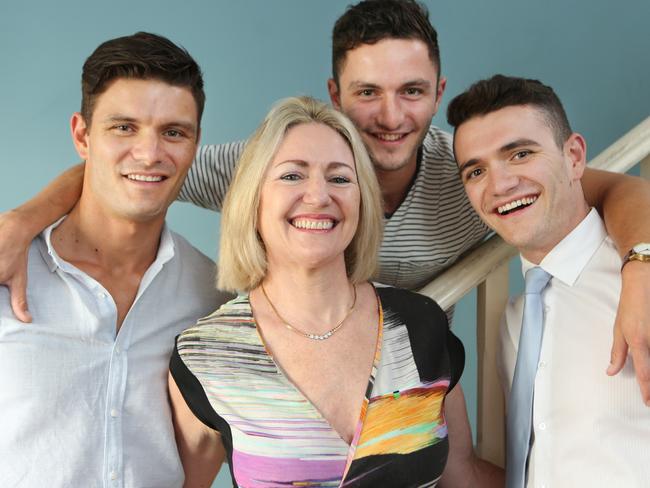
A staunch Catholic — paedophile priests are just impostors in the religion, she says — often outspoken and also a fourth dan black belt in taekwondo, Cunneen forged her reputation as a Crown Prosecutor in some of the most high-profile and monstrous cases over more than four decades.
She has been involved in more than 100 murder cases and has prosecuted the likes of notorious paedophile Robert “Dolly” Dunn, serial rapists Bilal Skaf and the Khan brothers, triple murderer Michael Kanaan, and Graeme Reeves, the gynaecologist known as the Butcher of Bega for inflicting grievous bodily harm by removing a woman’s genitalia without her consent.
Cunneen has also been portrayed on screen by such big names as Lisa McCune and is the inspiration behind the Janet King TV series.
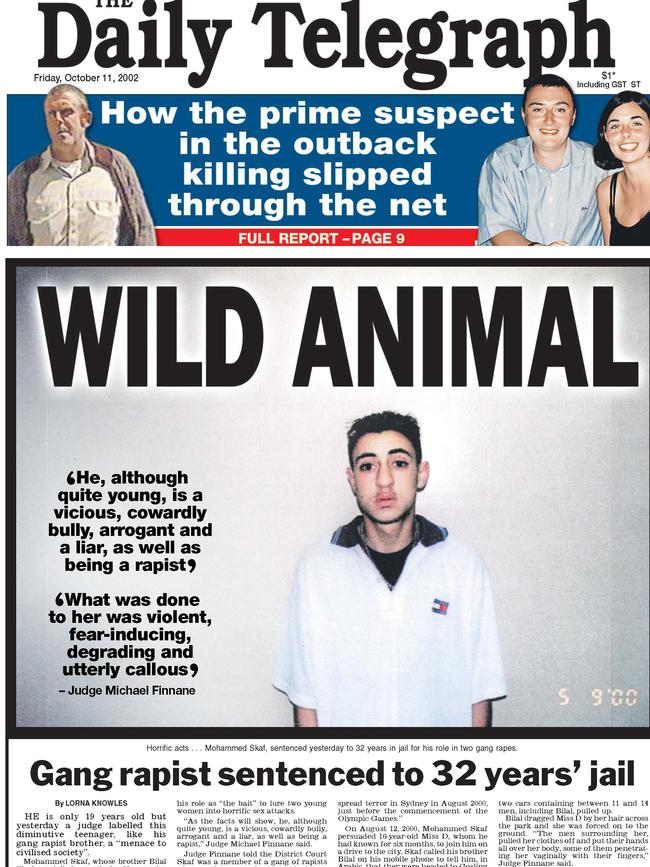
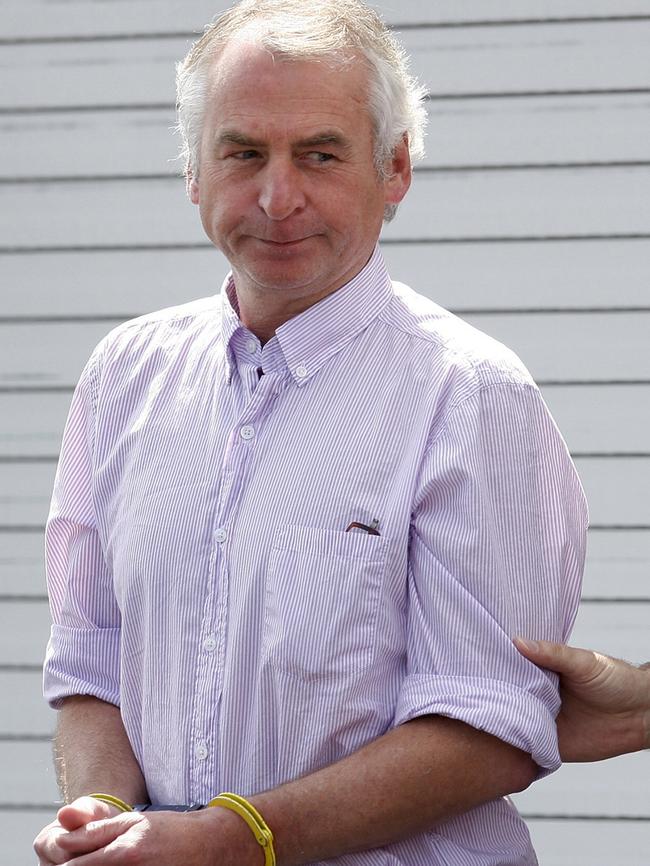
“In fact, when (Marta Dusseldorp) got an actor award for playing Janet King, and it was right at the height of my troubles … In her acceptance speech, she referenced me. The camera panned in and she said, ‘well, I play this role as an actor, but the real person is here.’ And what an accolade, what an expression of support’.”
Cunneen reveals on I Catch Killers those cases that have stuck with her during four decade career at the bar.
One that remains sharply in focus is the case of hoax collar bomber Paul Douglas Peters, whose parole date is coming up 10 years on since he broke into the home of schoolgirl Madeleine Pulver as she was studying for her HSC and threatened to detonate a device he placed around her neck.
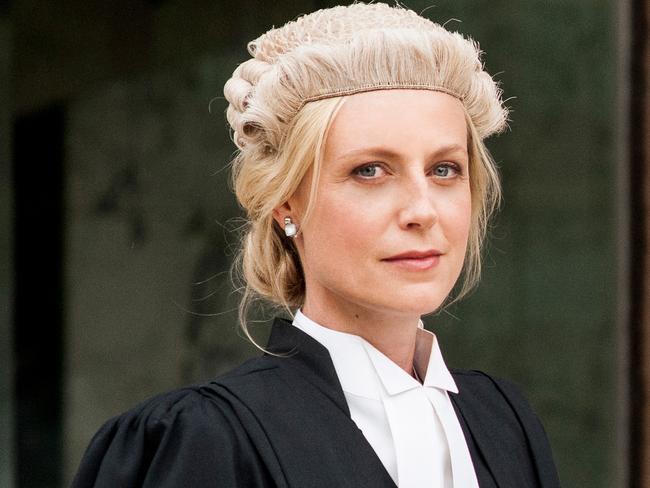
“Her parents couldn’t come and hold or touch her because the police didn’t want to risk anyone else being detonated. But two wonderful police women stayed with her very close all day long.
“(Peters) was a father of daughters himself, can you believe?
“Thank goodness there was nothing there but the terror that that poor girl was put through all day and her parents.”
Cunneen is now working as a criminal defence barrister having stepped down from the position of NSW Deputy Senior Crown Prosecutor after reaching the government retirement age.
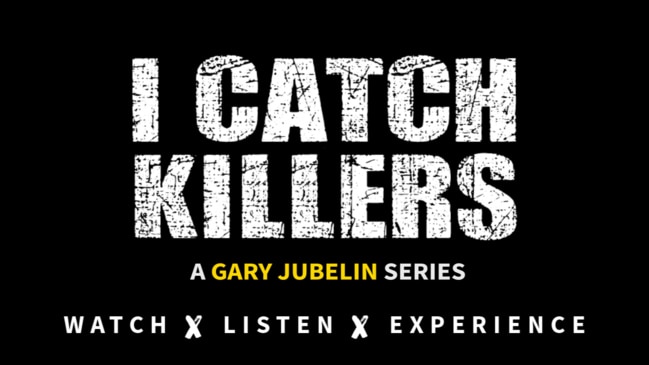
She is still handling some of Sydney’s biggest cases, including that of Kulwinder Singh who was found not guilty last month of murdering his wife Parwinder Kauh after he was accused of setting fire to her at their Sydney home.
“It was an honour to represent that innocent man. He should never have been charged,” she says.
Cunneen remains as fervent as ever in seeking justice on the other side of the bar table.
“It has been easy to transition because I’ve still got someone to look after. I used to think that I looked after the victims of crime, poor children or poor bereaved parents of people who had been murdered. There was someone to look after. And now I still have that with people, quite often, falsely accused of crimes.”
WANT MORE GARY JUBELIN? Join the I Catch Killers group on our dedicated Facebook page
Originally published as I Catch Killers: Margaret Cunneen reveals the pain behind ICAC investigation

